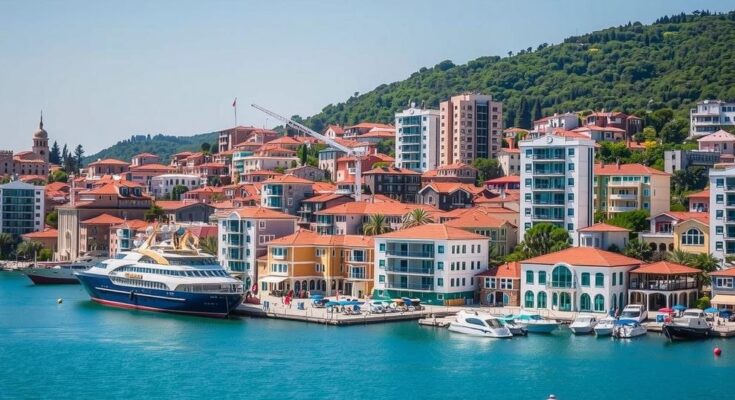Lebanon faces a pivotal moment with the election of Joseph Aoun as president amid the weakening influence of Hezbollah, Syria, and Iran. His leadership may signal a shift towards stability as he tackles pressing issues, including disarming Hezbollah and restoring state authority. The effectiveness of Aoun’s presidency will depend on his ability to navigate the entrenched political landscape and pursue foreign relations aimed at rehabilitating Lebanon’s international standing.
Lebanon can expect a transitional period of potential stability with the election of Joseph Aoun as its new president. Aoun’s presidency comes at a time when the influence of Hezbollah and its backers, Iran and Syria, is waning due to regional shifts following recent conflicts. However, the president’s ability to establish a functioning government and make significant changes will largely depend on his capacity to navigate the existing political landscape and address the demands of entrenched political elites. The comparison to past leaders raises hopes for meaningful reform, though the hurdles in disarming Hezbollah and restoring peace remain daunting.
In a region characterized by complex power dynamics, Lebanon has historically faced challenges in achieving stability. The intricate interplay among various internal factions, external influences from neighboring countries, and the significant impact of larger geopolitical events necessitate a delicate balance for the nation. Joseph Aoun, as a military figure, steps into a presidency marked by preceding instability, with the hope of modernizing government operations and achieving consensus amidst a politically fragmented environment. Key indicators of progress will include the composition of his cabinet and the legislative framework that emerges following parliamentary elections.
The deteriorating conditions of Hezbollah and the decline of Syrian influence have contributed to new opportunities for Lebanon. President Aoun must confront the longstanding issue of Hezbollah’s military presence, which complicates government authority and national unity, especially after the group’s acceptance of his election. Intending to pursue a policy of neutrality, Aoun’s government faces the critical challenge of re-establishing Lebanon’s sovereignty while managing local expectations and external pressures from various factions and interests. His success will be measured by both domestic and international responses to initiatives aimed at restoring Lebanon’s legitimacy.
The road ahead requires diplomatic engagement from supportive nations like the U.S., France, and Saudi Arabia, who played a role in facilitating Aoun’s election. However, Lebanon’s path to stability may be fraught with obstacles, particularly against the backdrop of ongoing Iranian hostilities and regional tensions. Furthermore, the crucial appointments made by the new government and the willingness to confront Hezbollah’s armament will greatly influence the overall political landscape. As Lebanon stands at this crossroads, the decisive actions taken in the coming months will either pave the way for recovery or perpetuate the cycles of discord that have afflicted the nation for years.
The political landscape of Lebanon has long been shaped by a myriad of internal and external forces. The interplay among various communal factions, regional influences, and international interventions has consistently hampered the nation’s quest for stability and reform. The ascent of Joseph Aoun as president marks a potential pivot point, as weakening actors like Hezbollah, Syria, and Iran may present an opportunity for Lebanon to redefine its governance and re-engage with the international community. The country’s diverse communities, alongside longstanding issues stemming from its civil war, compel a thorough reconstruction of political authority and governance, particularly in light of recent electoral developments.
In conclusion, Joseph Aoun’s presidency symbolizes a critical opportunity for Lebanon to redefine its governance amidst a backdrop of weakening external influences. The success of his administration will hinge on resolving the contentious issue of Hezbollah’s military presence, establishing robust diplomatic relations, and revitalizing state institutions. The careful navigation of internal factions, consistent international support, and adherence to a policy of neutrality may yet enable Lebanon to regain stability, helping it emerge from decades of internal strife and external manipulation.
Original Source: www.arabnews.com




